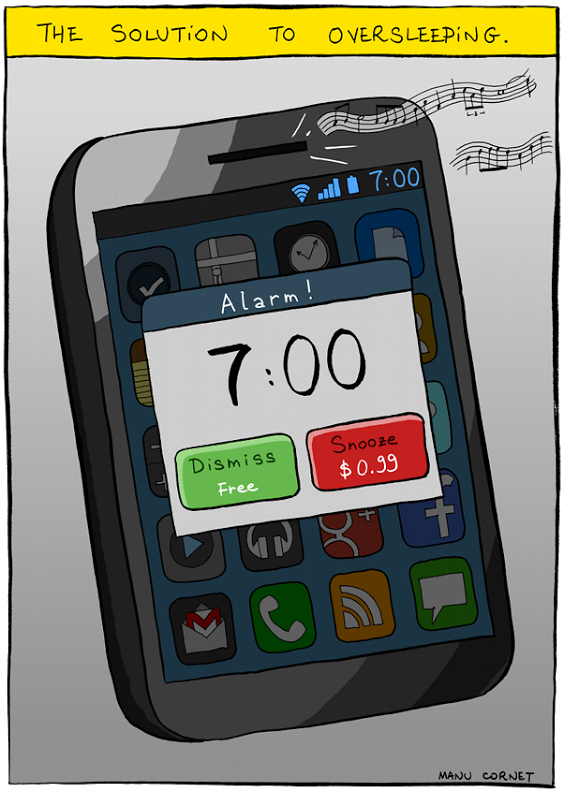Rethinking Sleep - NYTimes.com
Jared Sperli stashed this in life

Source: Rethinking Sleep - NYTimes.com
Stashed in: #lifehacks, Sleep!, #happiness, Sleep, Downtime, Intelligence
Typically, mention of our ever increasing sleeplessness is followed by calls for earlier bedtimes and a longer night’s sleep. But this directive may be part of the problem. Rather than helping us to get more rest, the tyranny of the eight-hour block reinforces a narrow conception of sleep and how we should approach it. Some of the time we spend tossing and turning may even result from misconceptions about sleep and our bodily needs: in fact neither our bodies nor our brains are built for the roughly one-third of our lives that we spend in bed.
The idea that we should sleep in eight-hour chunks is relatively recent. The world’s population sleeps in various and surprising ways. Millions of Chinese workers continue to put their heads on their desks for a nap of an hour or so after lunch, for example, and daytime napping is common from India to Spain.
Interested in keeping up with this.. I find that I feel better when I get about 5 hours of sleep, at the most. More than this, I'm groggy and not as alert. Many argue the 7-8 hour concept, so I'm glad to see more arguments rising against the proposed 'benefit'.
Everyone is different, and the most important thing is to know yourself.
For most people, 7-8 is right. But not everyone.
Most people need 7-8.
A very small number of people can be fine on less but those people are extremely uncommon.
Most people getting under 6 hours are impaired because of it but don't even realize it
Just missing an hour of sleep is enough to effectively takes point off your IQ.
Why else is it important?
- Being tired actually makes it harder to be happy.
- Lack of sleep = more likely to get sick.
- "Sleeping on it" does improve decision making.
- Lack of sleep can make you more likely to behave unethically.
Here's how to improve your naps.
Here's everything you need to know about sleeping better at night.
I'm in favor of daytime napping. That was my favorite part of kindergarten.
Naps give me mild headaches.
So then you live without naps?
Mostly. Unless you count falling asleep at the keyboard off and on many nights before I finally give up for the night.
Haha. We call that The Sleep Dance. :)
I, too, am not a napper.
So you just sleep, then get up and stay awake until the next long sleep?
Yep. And I can do extended 25-27 hour days, rolling things forward, if needed. Or just avoid sleep at all for a while. That's not healthy and takes a bit to recover fully from. I've gone without sleep at all for more than 3 days 5 times. Trying to avoid that. I've also had years that averaged as lower than 5 hours a day. 8 seems too much generally, but less than 6 isn't enough and leaves me partially impaired part of the day, although I usually wake up completely for part of the day. When having to commute a lot, it sometimes works out: I'm groggy while commuting but alert most of the work day.
The problem these days is that it is more like I'm groggy for several hours and I avoid long commutes. So I waste early time at work or just come in late. Then when I'm awake I'm awake and fully alert for a long time, usually to 2am+ when I'm in that mode.
Like I said, I've been avoiding that currently, but I did it on the last couple projects where I was very effective. Now, I'm also managing, so I need to keep a more or less reasonable schedule which may be suboptimal for programming.
Which is why some people never leave programming for management. Lets them keep the schedules their bodies want.
My happy sleep is seven hours. I wake up naturally remembering my last dream. Those are awesome wakeups and I have collected a lot of dreams that way. I do not often sleep that long. Even before the Army, I seemed to choose to operate with a large sleep deficit. There are days when I do take a nap, but I need at least 4 hours or so (which is my minimum for a decent night sleep). So it is like the nap is a long sleep for me. If my naps are shorter, I am a monster and need to be fed right away.
Do you keep a dream journal, Jared?
I used to more regularly. I have books of them. I let my old friends read them for laughs.
Did you learn anything by keeping them?
only about myself? Sometimes I still get dreams in Chinese, so I guess it is good review since I have not touched the language in eight years.
I think the entertainment value is the key piece as opposed to learning. Creativity and memory are probably improved by the exercise of writing out dreams.
Robert Monroe, the Out of Body pioneer, used the naps to induce the OOB. An old interview with him if you are curious about this great man: http://www.lucid-mind-center.com/robert-monroe-out-of-body.html










6:46 PM Sep 26 2012